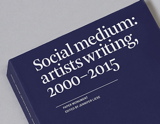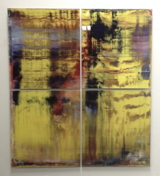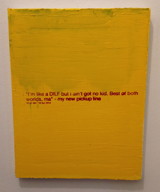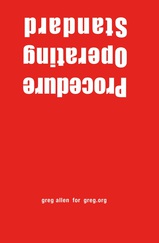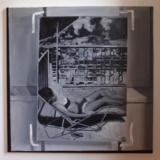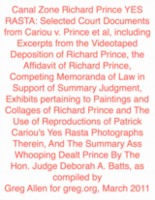I don't want to pick on Ruth Graham, just the opposite. I have had "Word Theft," her Poetry Foundation essay on plagiarism open in my tabs for two months because the relentlessly negative framing of the issue is so representative of the way text copying or reuse is discussed practically everywhere.
Graham focuses on a particular type and context and history of plagiarism: the republishing of poetry. Most of the cases she describes involve less-established poets rewriting or adding to poems published by someone else. They often happen across borders or continents, with poems transplanted from one national/regional ecosystem to another, from one tiny journal to another. Invariably, the original writer is not credited or notified when her work is reused.
Here is how Graham tries to explain these plagiarists' sins, starting with a set-up from Ira LIghtman, a British poet who became a sort of plagiarism vigilante last year, unearthing unauthorized copying and notifying the victims:
"I don't see them all as these sinister, plotting, Machiavellian characters," he said. "I see it as a corruption. And we're all vulnerable to corruption." He suggests that transgressors retreat to self-publishing for a few years, prove themselves honest, and then return to the fold.First, I love this notion of a self-publishing wilderness these sinners are supposed to wander. But it's really the professed bafflement at the copyists' motives. It is apparently impossible, ever, for the poetic imagination to muster even a non-pathological explanation for copying or reuse, much less a sympathetic one. And if the poetry universe were ever to come into contact with a constructive or affirmative explanation, a defense, a championing of plagiarism, I'm sure it would annihilate in a flash of crackling heat.If plagiarists are not sinister and Machiavellian, then why do they do it? This question gets asked every time there's a fresh revelation of plagiarism, whether it's in the literary world, journalism, or academia. There's never a satisfying answer, but there are at least lots of guesses, often somewhat at odds with each other: laziness or panic, narcissism or low self-esteem, ambition or deliberate self-sabotage.
And yet. And yet, Graham's own historical set-up notes that Coleridge was "an inveterate thief," and Hart Crane "borrowed heavily from a lesser-known" contemporary. Literary outlaw Laurence Sterne's success with Tristram Shandy is an historical disgrace, according to Graham's telling, but frankly, despite her scolding, the novel comes out sounding kind of awesome.
Again and again, it strikes me that the pieces are there to assemble a clearer, more productive view of plagiarism, but people are too blinded by the pain, the hurt, the effrontery of it all.
Is there a way to pick this dynamic apart, though, and look at its constituent elements? Cultural norms and expectations of each field differ. People may not know them, or they may ignore or reject them, or they may challenge them. This matters. I think the direction of reuse matters: up, down, or across? So does the perceived tenure or seniority or insiderness of the parties, or conversely, their tenure-seeking, amateurism, or marginality. The utility of publication for a career, or a brand. The effects of not being credited, not "getting one's due," recognition in a field where recognition is almost the only compensation available.
Is there a way to even have a conversation about plagiarism where it's not a priori evil? How would that go? How would it be if poets whose work was reused or reworked thought it was great, not offensive? What if complete internalization and adoption of a poem by a reader was considered the highest praise and achievement, not an insult? What if Google or whatever obviated any presumption of undetectable reuse, and everybody came to expect that sources or similarities were always only a search away? What if, when it came to expecting or demanding credit, poets took the road less traveled, and it made all the difference?
Word Theft, by Ruth Graham [poetryfoundation.org]


